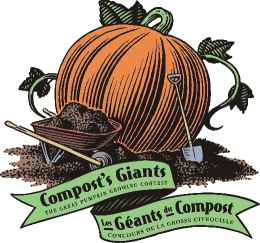


Compost is one of the best solutions to the challenge of climate change. Not only does the composting process reduce greenhouse gasses (by eliminating methane gas emissions from landfill), but the application of compost to soil actually pulls carbon dioxide out of the atmosphere! A recent study in California found that the application of compost to grazing lands set up a feedback loop in the soil that resulted in large increases in soil carbon. When carbon increases in soil, it’s a good thing – not only does it increase soil fertility (those grazing lands had a 50 percent increase in productivity), but it reduces carbon dioxide in the atmosphere.
What is even more incredible is that the scientists found that this carbon-trapping feedback loop, created by just one application of compost, continued for at least ten years! Their calculations showed that one tonne of food waste, when composted and applied to the soil, resulted in the long-term capture of at least one tonne of carbon dioxide from the atmosphere. And this is not even counting the emissions avoided by not putting the organic wastes in landfill or from fertilizer replacement.
You can do this yourself, at home, by composting your organic wastes and using that compost on your lawn and garden. Even if you can’t or don’t want to compost yourself, you can achieve similar benefits by using the municipal organics collection service and then using the compost the city makes on your own lawn and garden. Remember, every carbon atom in the soil is one less in the atmosphere and composting and applying compost to soil are champions at making this magic happen.



